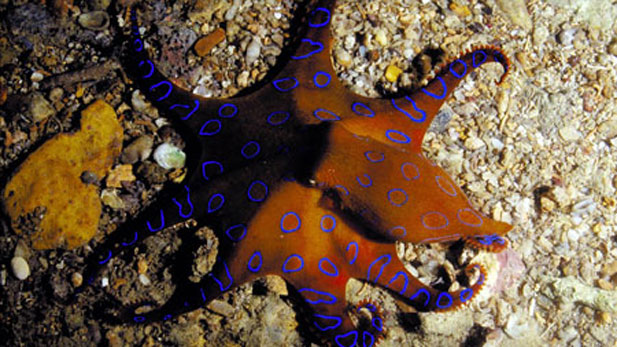
The paralyzing venom of the blue-ringed octopus makes it one of the deadliest of sea creatures, yet a substance in that very same poison may one day help people manage chronic pain. NATURE explores the effects of venom, both as a killer in the animal kingdom and a potential lifesaver in human medicine.
The film introduces us to carefully trained researchers around the world who are risking harm - even death - to themselves by "milking" the venom of live animals so that the various components of these poisons can be studied in great detail and better understood, perhaps preparing the way for clinical trials against a variety of diseases and medical conditions. It's not only a dangerous job but a laborious one, since only tiny amounts of venom can be extracted at a time.
Much of the research is going on in Australia, because that is where many of the most deadly venomous creatures are found. In addition to the Sydney funnel web spider, which is a menace to city dwellers, the desert of the land down under is home to the five snakes with the deadliest venom: the tiger snake, the death adder, the taipan, the fierce snake, and - most feared of all - the brown snake, whose venom is 12 times more potent than the much-feared Indian cobra.
In another desert environment, that of the Southwestern U.S., much of the focus is on the Gila monster, a type of lizard whose venom contains a substance that allows the animal to maintain a steady level of insulin in its blood, even though it eats only a few large meals a year. The hope is the same chemical will help human diabetics to avoid the dangerous swings in blood sugar levels that can afflict those who take insulin.
See previews and find out more at pbs.org
Watch it on Saturday, December 6tht at 6:00 p.m. on PBS-World

By submitting your comments, you hereby give AZPM the right to post your comments and potentially use them in any other form of media operated by this institution.